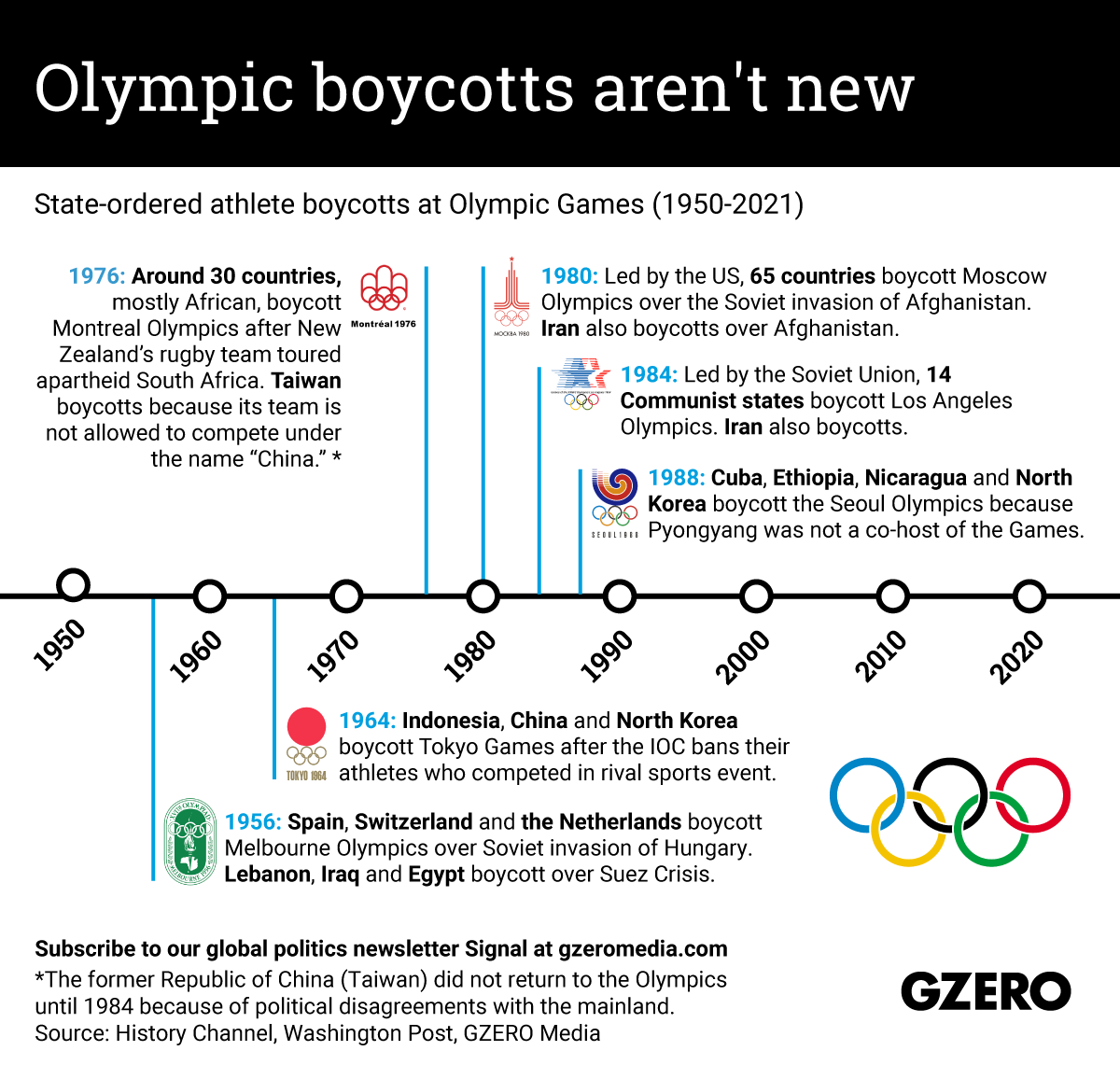December 12, 2021
Half a dozen countries have now joined the US in a diplomatic boycott of the upcoming Winter Olympics in Beijing, which kick off in February. China, for its part, is furious and says it will retaliate. Still, not sending government officials to attend the Games is not as weighty as governments banning their athletes from competing altogether. And there’s plenty of precedent for this — particularly during the Cold War era. We take a look at state-ordered athlete boycotts at the Olympics since 1950.
More For You
- YouTube
In this Quick Take, Ian Bremmer weighs in on the politicization of the Olympics after comments by Team USA freestyle skier Hunter Hess sparked backlash about patriotism and national representation.
Most Popular
Bad Bunny during the Super Bowl LX halftime show press conference at Moscone Center.
Kirby Lee-Imagn Images
100 million: The number of people expected to watch the Super Bowl halftime performance with Bad Bunny, the Puerto Rican superstar and newly minted Album of the Year winner at the Grammys.
Alysa Liu of Team USA during Women Single Skating Short Program team event at the Winter Olympic Games in Milano Cortina, Italy, on February 6, 2026.
Raniero Corbelletti/AFLO
Brazilian skiers, American ICE agents, Israeli bobsledders – this is just a smattering of the fascinating characters that will be present at this year’s Winter Olympics. Yet the focus will be a different country, one that isn’t formally competing: Russia.
What We’re Watching: Big week for elections, US and China make trade deals, Suicide bombing in Pakistan
Feb 06, 2026
Japanese Prime Minister Sanae Takaichi, president of the Liberal Democratic Party (LDP), appeals for a candidate during a street speech of the House of Representatives Election Campaign in Shintomi Town, Miyazaki Prefecture on February 6, 2026. The Lower House election will feature voting and counting on February 8th.
The Yomiuri Shimbun
Japanese voters head to the polls on Sunday in a snap election for the national legislature’s lower house, called just three months into Prime Minister Sanae Takaichi’s tenure.
© 2025 GZERO Media. All Rights Reserved | A Eurasia Group media company.
